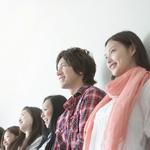Kobe Medical Welfare University Introduction
Overview
Established in 2000.
Type: Private university in Japan
Abbreviation: "Kobe Medical Welfare University" (こうべいふくだい)
Location: Located in Kobe City, Hyogo Prefecture, Japan, the specific address is: 〒651-2185 Hyogo Prefecture Kobe City Kita-ku Suzurandai 3-1-1.
Number of students: About 2,000 (as of the latest data).
Educational philosophy
Kobe Medical Welfare University has the educational philosophy of "cultivating medical and welfare talents with high professionalism and humanistic care". The school emphasizes that students should not only master solid professional knowledge, but also have good professional ethics and social responsibility. The school is committed to cultivating professionals who can provide high-quality medical and welfare services to society through education and research.
Disciplines
Faculty of Health and Medical Sciences:
Nursing Discipline
Occupational Therapy Discipline
Physical Therapy Discipline
Radiological Technology Discipline
Clinical Examination Discipline
Faculty of Welfare:
Social Welfare Discipline
Nursing Welfare Discipline
Specialized Courses
Nursing Discipline:
Teaching nursing theory and practice, and cultivating professionals with clinical nursing and health management capabilities.
Providing abundant internship opportunities for students to gain experience in a real environment.
Occupational Therapy Discipline:
Teaching occupational therapy theory and practice, and cultivating professionals with rehabilitation treatment and life support capabilities.
Providing specialized laboratories and internship facilities for students to conduct practical operations and experiments.
Physical Therapy Discipline:
Teaching physical therapy theory and practice, and cultivating professionals with rehabilitation treatment and exercise therapy capabilities.
Providing specialized laboratories and internship facilities for students to conduct practical operations and experiments.
Radiological Technology Discipline:
Teaching radiological technology theory and practice, and cultivating professionals with medical imaging diagnosis and radiotherapy capabilities.
Provide specialized laboratories and internship facilities for students to conduct practical operations and experiments.
Clinical Examination Discipline:
Teach clinical examination theory and practice, and cultivate professionals with medical examination and laboratory technical capabilities.
Provide specialized laboratories and internship facilities for students to conduct practical operations and experiments.
Social Welfare Discipline:
Teach social welfare theory and practice, and cultivate professionals with social work and community service capabilities.
Provide abundant internship opportunities for students to accumulate experience in a real environment.
Nursing and Welfare Discipline:
Teach nursing and welfare theory and practice, and cultivate professionals with elderly care and life support capabilities.
Provide specialized laboratories and internship facilities for students to conduct practical operations and experiments.
Teaching Facilities
Classrooms: Equipped with advanced teaching equipment and multimedia facilities.
Laboratories: Provide specialized laboratories for students to conduct experiments and practical exercises.
Library: Rich collection of books, providing various professional books and journals.
Computer room: Equipped with high-performance computers and professional software to support students in digital design and production.
Internship Facilities: Cooperate with many hospitals, clinics and welfare agencies to provide internship opportunities.
Clinical Skills Training Center: Provides a simulated clinical environment for students to conduct practical operations and drills.
Campus Life
Student Clubs: The school has a number of student clubs, including cultural clubs, sports clubs, etc., to enrich students' extracurricular life.
Campus Activities: Regularly hold cultural festivals, sports meets, academic seminars and other activities to enhance students' teamwork and social skills.
Ranking
Comprehensive ranking of private universities in Japan: Kobe University of Medical Welfare ranks relatively high among private medical universities in Japan, especially in the Kansai region.
Specific field rankings:
Nursing discipline: In the field of nursing, Kobe University of Medical Welfare ranks relatively high.
Occupational therapy discipline: In the field of occupational therapy, Kobe University of Medical Welfare also has a high evaluation.
Physical therapy discipline: In the field of physical therapy, Kobe University of Medical Welfare also has a high evaluation.
Radiological technology discipline: In the field of radiological technology, Kobe University of Medical Welfare has a high evaluation.
Clinical Examination: Kobe University of Medical Welfare has a high evaluation in the field of clinical testing.
Social Welfare: Kobe University of Medical Welfare has a high evaluation in the field of social welfare.
Nursing Welfare: Kobe University of Medical Welfare has a high evaluation in the field of nursing welfare.
Contact Information
Address: 〒651-2185 3-1-1 Suzurandai, Kita-ku, Kobe City, Hyogo Prefecture
Tel: +81-78-983-1111
Fax: +81-78-983-1112
Email: info@kobemedical.ac.jp
Employment Support
Career Development Center: Provides students with employment guidance and internship opportunities to help them enter the workplace smoothly.
Corporate Cooperation: Established cooperative relationships with many hospitals, clinics and welfare institutions to provide students with internship and employment opportunities.
The latest data shows that the employment rate of graduates from this school is over 90%.
Internationalization
International Exchange: The school actively promotes international exchanges and has established cooperative relations with universities in many countries and regions, providing students with abundant overseas study opportunities.
Language Support: Provide Japanese and English support for international students to help them better adapt to study and life.
Featured Projects
Internship Projects: The school cooperates with many hospitals, clinics and welfare institutions to provide students with abundant internship opportunities and help students apply theoretical knowledge to practical work.
Community Service: Encourage students to participate in community medical services and welfare activities to cultivate students' sense of social responsibility and practical ability.
-
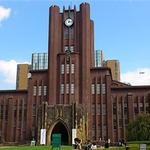
The University of Tokyo
-
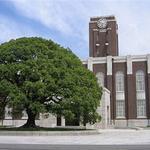
Kyoto University
-
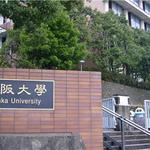
Osaka University
-
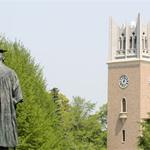
Waseda University
-
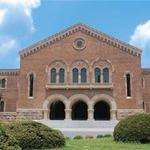
Hitotsubashi University
-
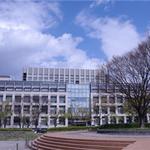
Nagoya University
-
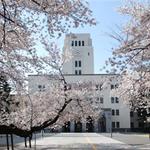
Tokyo Institute of Technology
-
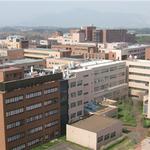
University of Tsukuba
-
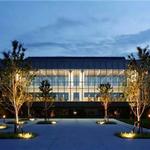
Keio University
-
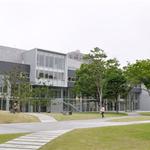
Tohoku University
-

Mesoamerican University
-

Istmo University
-

Mariano Galvez University of Guatemala
-

Regional University of Guatemala
-

Galileo University
-

Francisco Marroquín University
-

Rafael Landívar University
-

University of the Valley of Guatemala
-

University of San Carlos of Guatemala
-

Technological Institute of Tlaxcala Plateau
-

Golfo University
-

Technological University of South Sonora
-

Technological University of Huejotzingo
-

Tizimín Institute of Technology
-

Chilpancingo Institute of Technology

